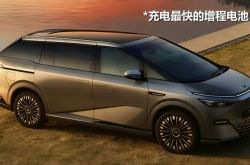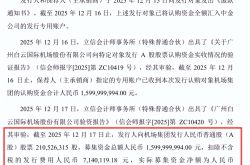Who else buys into Mobileye?
![]() 09/13 2024
09/13 2024
![]() 581
581

Introduction
If all goes as expected, the initial results of competition in the domestic intelligent driving market will soon emerge.
Has Mobileye also abandoned the lidar camp? According to rumors, Mobileye will streamline its business and terminate internal development of FMCW lidar for autonomous and highly automated driving systems. There are three main reasons for this decision:
1. Mobileye's new generation of products offer enhanced visual perception capabilities.
2. The clarity of imaging radars developed internally by Mobileye has further improved.
3. The cost reduction achieved by third-party ToF (Time-of-Flight) lidar exceeded expectations.
Furthermore, Mobileye stated that shutting down the lidar department would not significantly impact the company's 2024 performance. However, interestingly, last month Mobileye revised downward its annual revenue and profit forecasts, citing fluctuations in demand for its intelligent driving chips in the Chinese market.

It would be inaccurate to say that Mobileye has completely abandoned lidar, but it is not difficult to guess that in the Chinese market, Mobileye's position has indeed become precarious since ZEEKR also abandoned its partnership.
Founded in 1999, Mobileye provides software and hardware for autonomous driving systems and was once a loyal partner of Tesla in its intelligent driving efforts.
However, on the other hand, Mobileye's intelligent driving solutions possess a "black box" attribute, making it challenging not only for efficient hardware and software collaboration but also for customization of autonomous driving algorithms. Precisely for this reason, Tesla parted ways with Mobileye.
According to the latest financial report, Mobileye's revenue in the second quarter of this year was $439 million, a year-on-year decrease of 3%; its net loss was $86 million, doubling the loss from the previous year; and its adjusted net profit was $76 million, also down 44% year-on-year.

Perhaps anticipating continued losses, Mobileye chose to develop lidar in-house, seeking a shortcut. However, beset by internal and external challenges, Mobileye lacked the strength to compete with Chinese manufacturers like Hesai and RoboSense, ultimately leading to the shutdown of its lidar department.
Looking back at the current domestic market, lidar is no longer a mystery. As a crucial component of smart vehicles, lidar is widely accepted by consumers. With the increasing number of new vehicles equipped with lidar, people have grown accustomed to the idea that smart electric vehicles should be equipped with lidar.
However, it is evident that there is still no consensus on whether lidar should be included in intelligent driving systems. Some argue that lidar is essential for safety, while others contend that advanced vision technology alone is sufficient.
This is one of the reasons why Mobileye's decision to shut down its lidar department has attracted widespread attention. The intelligent driving market urgently needs a phased outcome.

If, in previous years, Tesla, with its unwavering stance against lidar, was a staunch bear on the technology, today's Chinese automotive market has seen several automakers join the ranks of pure vision advocates, such as Xpeng, Jiyue, and Huawei, among others.
What drives such a shift?
Amid the broader trend of cost reduction and efficiency enhancement, Tesla's FSD entering the Chinese market, end-to-end large models, and automakers' curiosity about pure vision intelligent driving solutions have all contributed to propelling Chinese intelligent driving to new heights.
Whether lidar is necessary for future intelligent driving systems remains an open question. At least for now, lidar undoubtedly holds value, especially given that technology is not yet 100% reliable, and lidar provides an essential safety redundancy.

Several years ago, the automotive industry reached a consensus: in the era of new energy vehicles, the first half is electrification, and the second half is intelligentization. Today, this concept has become increasingly tangible.
With the cross-industry entry of companies like Huawei and Xiaomi, the sustained promotion by new-energy vehicle makers, consumer enthusiasm, and the practical application of various intelligent features like smart cockpits, intelligent driving, and smart chassis in currently available products, a new era is slowly unfolding.
It is evident that the market has not yet fully matured, and all automakers are still searching for their positions and roles. In particular, in terms of intelligentization, only after sufficient competition will the leaders emerge.
In fact, there is no need to obsess over whether lidar should be included. As long as the intelligent driving experience is exceptional, and the brand and product quality are up to par, consumers will be willing to pay.

From a results-oriented perspective, the high-end intelligent driving market can be roughly divided into three camps: the "Huawei camp" backed by Huawei's technology, the "in-house development camp" led by Xpeng and Tesla, and the "collaboration camp" such as SAIC Motor and Momenta, and Great Wall Motor and Yuanrong Qixing.
Obviously, Mobileye does not occupy a position in any of these camps. In the low-end intelligent driving market, established component suppliers like Bosch and Continental, as well as emerging players like DJI, LightSpeed & AutoX, and Horizon Robotics, are all fiercely competing for market share.
"I believe that by the fourth quarter of this year, there will be very few brands capable of offering intelligent driving solutions nationwide, as only a handful of companies in China possess the necessary technological strength and capabilities. Once intelligent driving becomes a reality, the publicity will be overwhelming, and consumers' perceptions will change rapidly," Xia Yiping bluntly stated at the Jiyue 07 launch event, adding in a subsequent interview that:
"I believe that once intelligent driving becomes widely available nationwide in the fourth quarter of this year, consumer acceptance of this technology will increase significantly, widening the gap between brands and gradually eliminating some of them."

No one can fully predict the future, but the advancement of intelligentization is undoubtedly imminent. By that time, not only automakers but also intelligent driving companies with less distinct advantages, such as Mobileye, may gradually fade into obscurity amidst the tide of change.
Options are limited.
Amidst the smoke of price wars, marketing battles, and traffic wars in the automotive market, many automakers have lost interest in pursuing significant intelligentization changes. This hiatus, however, presents an opportunity for many intelligent driving companies to further win the favor of OEMs or seek investment to extend their lifespan.
Automakers, too, must awaken from their slumber, break free from the shackles of so-called price wars, find their long-term vision, and search for their unique "soul".





